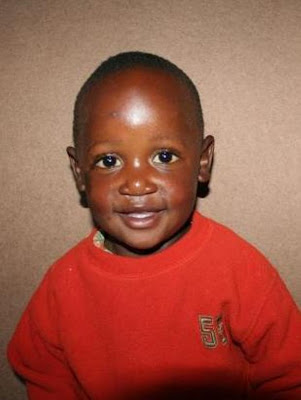NELSON CHAMISA SET TO DO BETTER THAN TSVANGIRAI'S 2013 RESULT
By 2:30a.m. Monday morning, we are informed Vice President Chiwenga was able to relax on the basis that the election was pretty much in the bag.
Was he correct? Let's break it down?
Nelson Chamisa is almost certain to do better than Morgan Tsvangirai did in 2013, especially in the urban, peri-urban and growth point areas. But we are likely not to get anything resembling the 2008 results. No GNU is in the offing, unless it is on the Mnangagwa's terms, with Nelson Chamisa as a quarrelsome supplicant.
The root of this scenario is the failure by the NPF and Thokozani Khupe to be factors in this election.
Mnangagwa is doing better than most would have expected in the urban constituencies and wards. Nelson Chamisa has managed to consolidate the vote of the opposition around his presidential ambitions here. But the opposition numbers have never managed to overwhelm ZANU PF nationally, even when consolidated.
It may not look like it, but apathy also played a part. Apathy? you ask. With a turnout of arounf 75%?
That may sound impressive until you look at unlikely but very telling rural areas like Mt Darwin, Mai Mujuru and Kasukuwere's home province. Here, polling stations with registered voters of between 500 and 1000 registered voters are managing a 90% turnout. Of that turnout, as of writing this, there is not a single polling station in which Nelson Chamisa manages to go past single digits. In fact, in none of them is the Alliance president getting 50 votes. Out of over 700 votes, for instance.
In fact, in one of the Uzumba, Maramba and Pfungwe polling stations, Chamisa managed to get only one, ONE, vote, while Mnangagwa collected over a thousand votes at that same polling station.
Do you understand what that does to several polling stations in Harare or Bulawayo where Nelson Chamisa is getting a majority of 200, 300 votes. ED wipes out three of four polling stations in Harare with one polling station in the Mtoko area.
Meantime, in the urban areas, even in areas where Chamisa is getting around between 300 and 500 votes, Mnangagwa is still routinely scoring above hundred. You see the maths?
The ZANU PF organising strategy, which started during the war and which many have been scoffing at during these elections, is not dead. It appears to be delivering now.
Mt Darwin and Murehwa should be telling for anyone wanting to look at trends. The excited opposition rallies in the rural areas were important for Nelson Chamisa, but not effective.
Once you get past the Growth Points and urban areas where results are always quicker to get out, the real ZANU PF starts coming into its own.
Laugh at "bussing people to rallies"? ZANU PF also busses them to the polling stations.
Turnout is higher as well, there.
Both sides of this divide were keenly, keenly motivated.
So, in the interim analysis, NPF and G40 appear to have failed to convince a large number of people in ZANU PF to go with them and President Mugabe to the MDC Alliance.
Do not also underestimate the power of the Mugabe endorsement in driving rural voters to Mnangagwa. How, you ask?
Simple.
The rural folk bore the brunt of Mugabe's reign of terror within ZANU PF if they so much as glanced at an opposition party. Now, here was a new leader who made sure they were not harassed or beaten. Meantime, the former leader has embraced the opposition. They still fear him and his grouping for their capacity for terror. Psychology says they have to rally in their numbers to the leader who has proven that he trusts them, will not beat them up or terrorise them. They have, by the weapon available to them, to make sure they stop the former Mugabe group from getting anywhere near power lest that new is used to take them back to the old days of terror.
It explains the high turnout. These guys are turning out for their lives.
The numbers we have seen so far coming out places like Mt Darwin and certain parts of Murehwa should be sending chills down the spines of Mnangagwa's opponents.
ZANU PF, by all indications, has held on to its rural base pretty much intact.
History, it looks like, is repeating itself.




Comments
Post a Comment
Comments from Anonymous Users will NOT be published